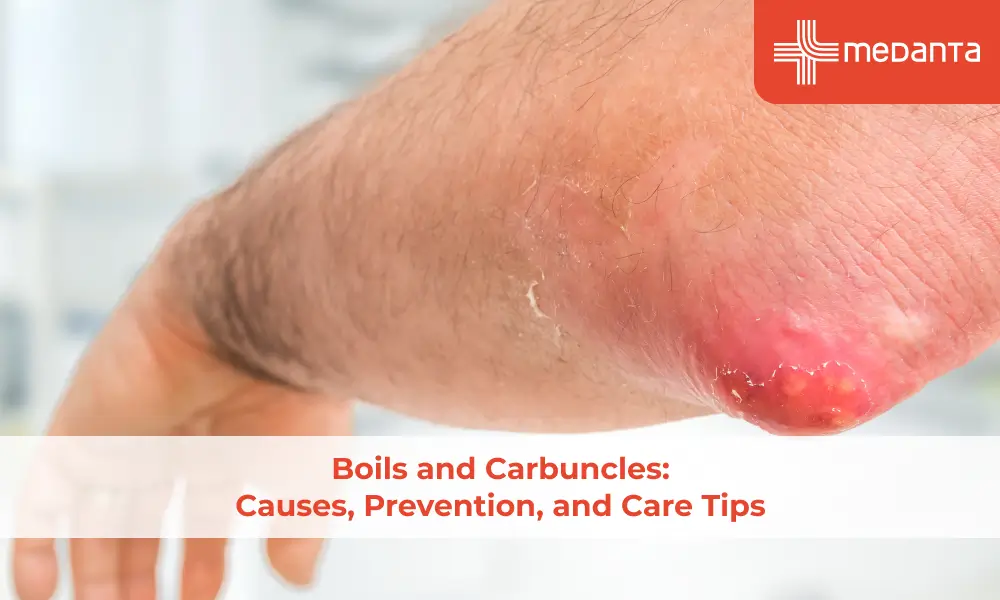Overcoming Intimacy Challenges Post-Prostate Cancer: Expert Tips

A prostate cancer diagnosis can feel like a seismic shift, shaking the very core of your identity and relationships. In the aftermath, the intimacy you once shared with your partner might feel distant, covered with uncertainty and the physical and emotional side effects of treatment. But know this: you are not alone. Countless men have walked this path, and emerged stronger, their love deeper, their bond more profound. In this blog, we’ll talk about life after prostate cancer treatment, life expectancy after prostate removal, how to deal with intimacy issues, and much more!
What Is the Life Expectancy After Prostate Removal?
You’ll be surprised to know that removing the prostate doesn't shorten a person's life, but might increase their lifespan. Studies have shown that removing the prostate can boost your life expectancy.
However, the actual benefit depends on the individual's initial risk level. Modern diagnostic tools help doctors predict how well a person will respond to the procedure. While removing the prostate isn't risk-free and some side effects, like infertility, can't be avoided.
None of the associated side effects are life-threatening, and in most cases, they can be managed. In fact, because prostate removal surgery is often used in prostate cancer treatment, it can actually improve survival rates.
Intimacy Issues Post-Prostate Cancer
Surgery to remove the prostate gland is known as radical prostatectomy. This treatment can impact your sex life in various ways.
Damage to the nerves responsible for an erection
During radical prostatectomy, the nerves necessary for an erection can be damaged. Nerve-sparing surgery can help reduce this risk, but not everyone is eligible for this procedure. Nerve-sparing surgery involves removing the cancer without cutting or damaging the nerves. However, if the cancer is close to the nerves, they may need to be removed. Some men may regain their ability to have erections, but this process can take anywhere from 3 months to 3 years. Others may require assistance for erections for the remainder of their lives.
Ejaculation issues
After a radical prostatectomy, you no longer ejaculate semen because the prostate gland and two glands called the seminal vesicles are removed. While your testicles will continue to produce sperm cells, they will be reabsorbed into your body. This is known as retrograde ejaculation. Despite this, you can still experience an orgasm, but it will be dry. For some men, a dry orgasm feels normal, while others find it less intense and pleasurable. The absence of visible ejaculation can also be significant for some individuals.
Effects on same-sex relationships
A radical prostatectomy can alter the sensation of anal sex for the receiving partner. Some men find pleasure in the penis rubbing against the prostate gland. Therefore, without the prostate, anal sex might feel different.
Strategies to Mitigate Intimacy Issues
While the challenges of intimacy post-prostate cancer are significant, there are several strategies that can help mitigate these issues:
- Medical Interventions:
- Medications: Medications such as sildenafil (Viagra), tadalafil (Cialis), and vardenafil (Levitra) are commonly prescribed to help men achieve and maintain erections. These medications work by increasing blood flow to the penis, making it easier to achieve an erection when sexually stimulated.
- Vacuum Devices: Vacuum erection devices (VEDs) are non-invasive devices that use a pump to create a vacuum around the penis, drawing blood into the penis to create an erection. VEDs can be effective for men who are unable to take oral medications or prefer a non-pharmacological approach.
- Penile Implants: For men who do not respond to other treatments, or who prefer a more permanent solution, penile implants may be an option. Penile implants are surgically implanted devices that allow men to achieve an erection whenever they choose by manually inflating the implant.
- Non-Medical Approaches:
- Counselling and Therapy: Counselling and therapy can be beneficial for men and their partners dealing with intimacy issues. A qualified therapist can help couples explore their feelings and concerns, improve communication, and develop strategies to enhance intimacy.
- Lifestyle Changes: Making healthy lifestyle choices, such as exercising regularly, maintaining a healthy weight, and avoiding tobacco and excessive alcohol use, can improve overall health and sexual function.
- Pelvic Floor Exercises: Pelvic floor exercises, also known as Kegel exercises, can help strengthen the muscles that control urination and improve bladder control. These exercises can be particularly helpful for men experiencing urinary incontinence after prostate cancer treatment.
- Alternative Therapies:
- Acupuncture: Some studies suggest that acupuncture may help improve erectile function in men with prostate cancer. Acupuncture involves the insertion of thin needles into specific points on the body to stimulate energy flow and promote healing.
- Herbal Supplements: Some herbal supplements, such as ginseng, L-arginine, and horny goat weed, are believed to improve erectile function. However, more research is needed to determine their effectiveness and safety.
Support Systems for Patients and Partners
Dealing with intimacy issues after prostate cancer is not something you have to face alone. It's essential to communicate openly with your partner about your feelings and concerns. Seeking support from a therapist or counsellor who specialises in sexual health can also be beneficial. They can provide you with strategies to improve your intimacy and help you navigate the challenges you may be facing.
Final Words
Life after prostate cancer can present many challenges, especially when it comes to intimacy and sexual function. However, with the right support and strategies, many men can overcome these challenges and enjoy fulfilling intimate relationships. It's essential to discuss any concerns you have with your healthcare team, as they can provide you with the resources and support you need to navigate this journey successfully. Remember, you are not alone, and there is help available to support you every step of the way.






